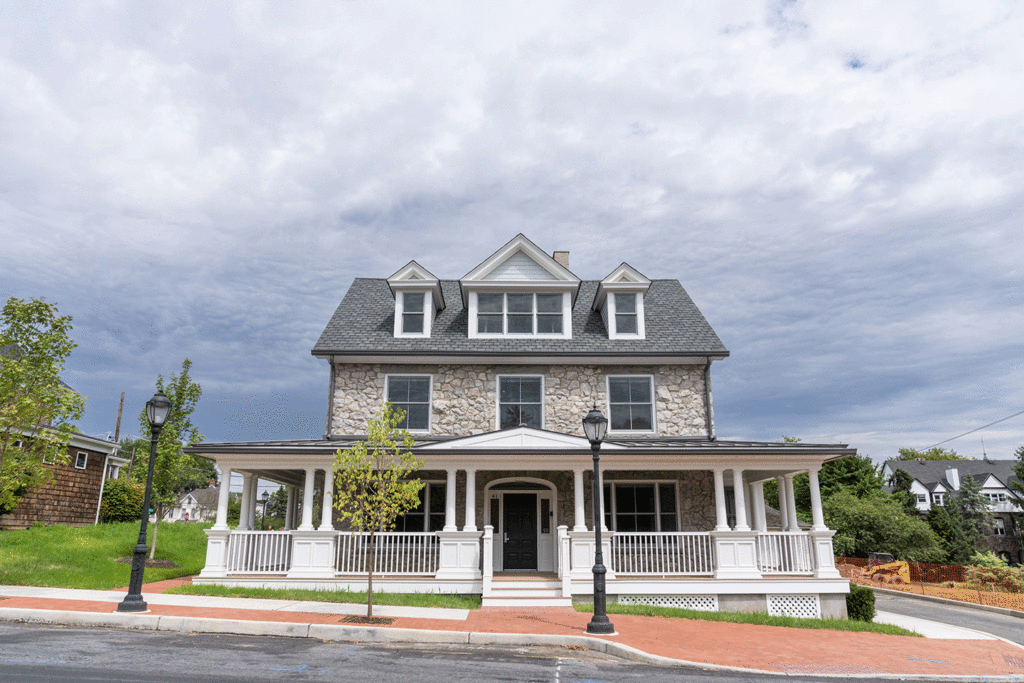The Portlock Black Cultural Center

Ongoing activities in the PBCC include student organization meetings, art exhibits, workshops, dinners for campus guests, alumni events, guest speakers and lectures, receptions, film showings, student social activities, and other community-sponsored events.
If you would like to host an event at the Portlock Black Cultural Center, please reserve through ems.lafayette.edu. The new Portlock Black Cultural Center, located at 41 McCartney Street, opened in the fall 2022. The Center serves as a residence for three students and a home away from home for those students who identify under the Black/African Diaspora. The Center features:
- A large gathering space on the first floor to accommodate community events and lectures, which can also be used as a living room for more casual student meetings.
- A 400 square foot rear patio for outdoor events and gatherings
- A second floor seminar room that serves as a library.
- A finished basement for social gatherings
- Three upstairs bedrooms and one ADA accessible bedroom downstairs
- Furnishings and decor sourced from Black-owned businesses and brands
- Where applicable, repurposed materials from the original building, including brick from the fireplace, the newel post from the foyer, as well as existing books, art, and accessories that give context to the history of Portlock Black Cultural Center.
History of the Center
The center opened as the Malcolm X Liberation Center in 1970 on the part of the site now occupied by Farinon College Center. It was relocated to 101 McCartney St., in 1990. In 2021, a historic home designed by architect William Marsh Michler, Class of 1883, originally located at 517 Clinton Terrace, was moved to 41 McCartney Street. This home was extensively renovated to serve as the new Portlock Black Cultural Center.
About David A. Portlock
The Malcolm X Liberation Center was renamed in 1999 for David A. Portlock, assistant dean of academics, who had died three years earlier at age 55. Portlock—who first joined the College in 1968 as a part-time consultant to the dean of students before becoming assistant dean of students in 1970 and assistant dean of academics in 1975— played a pivotal role in leading Lafayette toward a more diverse and inclusive future. Portlock helped create several programs at Lafayette, including the Black Cultural Center and the Association of Black Collegians. He also coordinated the study abroad program and was an advisor to Student Government.